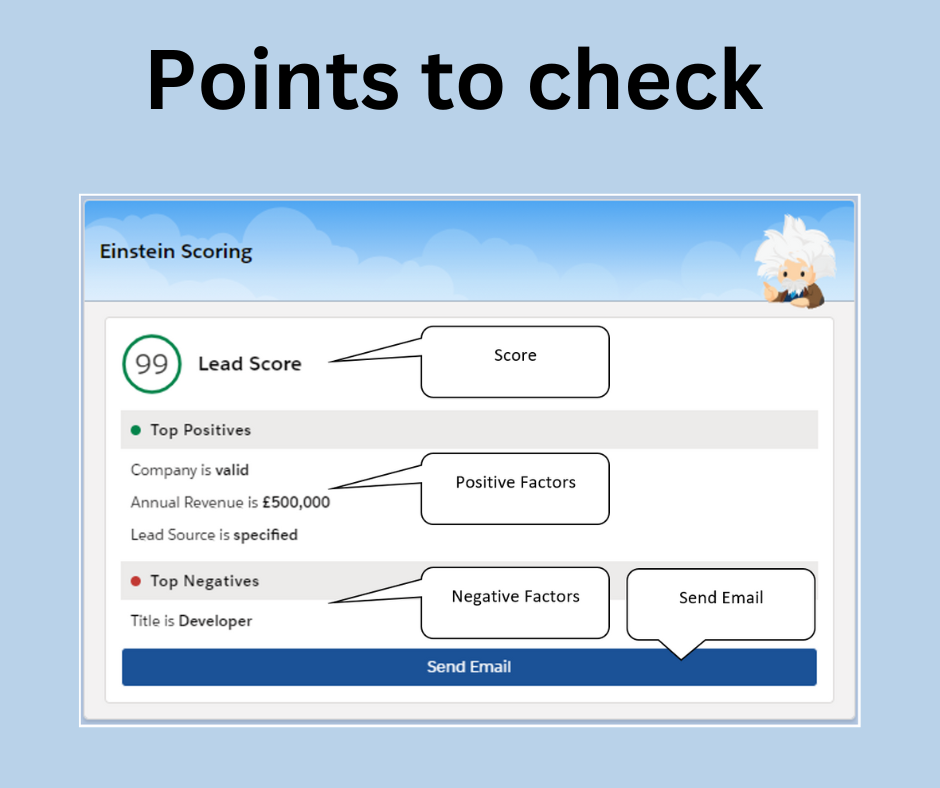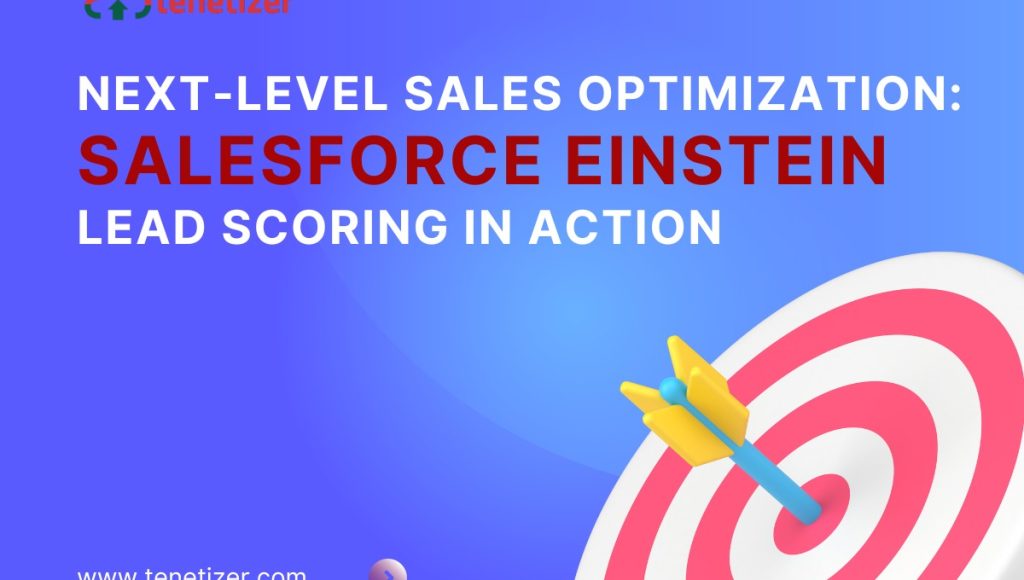Next-Level Sales Optimization: Salesforce Einstein Lead Scoring in Action
Salesforce Einstein Lead Scoring is a powerful tool for marketing companies aiming to optimize their sales processes. The traditional approach of relying on generic methods to decide which potential customers to focus on is no longer sufficient. Salesforce Einstein Lead Scoring uses artificial intelligence (AI) and advanced algorithms to predict lead scores based on the actions performed by leads throughout the sales funnel.
In this system, each lead’s actions, such as page views, site searches, downloads, email interactions, and more, are assigned predefined points. For instance, pages with pricing information may carry higher points, indicating greater interest. The cumulative points determine when a lead becomes a hot prospect. This process enables sales teams to prioritize their efforts and resources effectively.
Understanding when to contact a lead is crucial. Salesforce Einstein Lead Scoring helps analyze a lead’s position in the sales funnel, allowing salespersons to focus on more promising profiles. For example, reaching out to a lead who has downloaded a price sheet or requested a free quote is more likely to result in a successful conversion.
Salesforce’s Lead Scoring system offers numerous benefits when properly configured. It enhances sales productivity, generates more sales, provides accurate sales predictions, ensures higher lead quality, prevents sales funnel dropouts, reduces manual efforts, and improves lead management processes.

To implement Einstein Lead Scoring effectively, integration with Salesforce Marketing Cloud is essential. The Marketing Cloud Connect syncs data between sales and marketing teams, fostering collaboration and reducing instances where leads are ignored. The Marketing Cloud offers various features, including Pardot for reducing manual labor and personalized messaging, Journey Builder for harnessing customer data, Social Studio for monitoring social interactions, Google Analytics 360 for analyzing lead engagement, and Email Studio for automating and personalizing email campaigns.
To implement Einstein Lead Scoring effectively, integration with Salesforce Marketing Cloud is essential. The Marketing Cloud Connect syncs data between sales and marketing teams, fostering collaboration and reducing instances where leads are ignored. The Marketing Cloud offers various features, including Pardot for reducing manual labor and personalized messaging, Journey Builder for harnessing customer data, Social Studio for monitoring social interactions, Google Analytics 360 for analyzing lead engagement, and Email Studio for automating and personalizing email campaigns.
Predictive Analytics in Salesforce Marketing Cloud:
Predictive Analytics takes lead scoring a step further by leveraging data mining, machine learning, and modeling to predict future events. This AI-based approach considers personalized information and requires regular maintenance to stay relevant.
Traditional vs. Predictive Lead Scoring:
Traditional lead scoring relies on human judgment, while predictive lead scoring automates the process using AI and vast amounts of data. Predictive scoring considers historical trends, works with big data, and automatically scores leads, making it ideal for companies with a substantial customer base.
Salesforce Einstein Lead Scoring Process:
Salesforce Einstein Lead Scoring works by analyzing past and current leads, comparing data points, and creating predictive models. It assigns a lead score to each lead, helping sales reps prioritize their efforts. The system regularly reanalyzes and updates scores to adapt to changing trends.

Salesforce Einstein Insights
Salesforce Einstein extends its capabilities beyond lead scoring with features like Opportunity Insights, providing predictions about deal outcomes, Follow-up Reminders, and Key Moments notifications. Account Insights keep the team informed about key business developments through news-related insights.
Einstein Scoring Best Practices
Implementing negative scoring for irrelevant site visits, using different lead scoring models for different products, setting a maximum score threshold for hot prospects, assigning specific points for each action, and taking timely actions based on lead behaviors are essential best practices.
Conclusion
In conclusion, Salesforce Einstein Lead Scoring, when integrated effectively, brings intelligence to sales workflows, improves forecasting accuracy, and helps sales teams focus on leads with the highest conversion potential. The system’s ability to adapt and learn from data makes it a valuable tool for companies seeking efficient and data-driven sales processes. Contact us through form below for implementation help.

